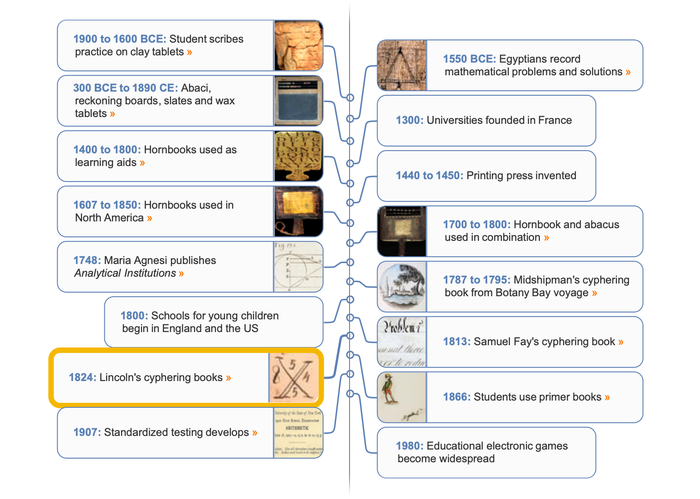1824
Lincoln's Cyphering Book
President Lincoln's multiplication practice
Cyphering books (where "cyphering" is an archaic term for arithmetic) are practice books written by students. Their use dates back centuries and may have originated in the Middle East and India. A cyphering book was typically prepared by an instructor, used by a male student and written in ink. The subjects in the cyphering book began with basic arithmetic and progressed to higher levels of mathematics as the student advanced. Cyphering books were often shared among family members or passed down from parent to child; the two most valued books a family owned were often the Bible and a cyphering book.

Like many children, Abraham Lincoln, the 16th president of the United States, learned to read, write and do his 'rithmetic. This page (the fourth in the numbering of Ellerton and Clements) from Lincoln's cyphering book, shows how he learned to multiply numbers and "cast out nines" to check his work. In all, 22 pages of Lincoln's cyphering book survive but are spread across multiple locations in the United States.




























